Research
Measurable Outcomes: PLL Research Evaluations
Research is at the core of the PLL System of Care. An independent evaluation design is included as part of the implementation plan for every partner site with at least two full-time teams. PLL’s web-based dashboard eases the burden of data collection and reporting while PLL staff provide infrastructure and support for provider and government agency staff.
The problem
- Other evidence-based models will often make the agency or state conduct their own evaluations without any direct support
- States or agencies often do not have the infrastructure or time to conduct evaluations on their own.
The Solution
- To address this problem, PLL conducts an independent evaluation design is included as part of the implementation plan for every partner site with at least one full-time team.
Research Outcomes
The Parenting with Love and Limits® (PLL) evidence based practice was developed by Dr. Scott Sells through intensive research with families and youth. The PLL evidence based practice has repeatedly received recognition for its outcomes in helping restore families. Below is a list of publications highlighting the effectiveness of the PLL model.
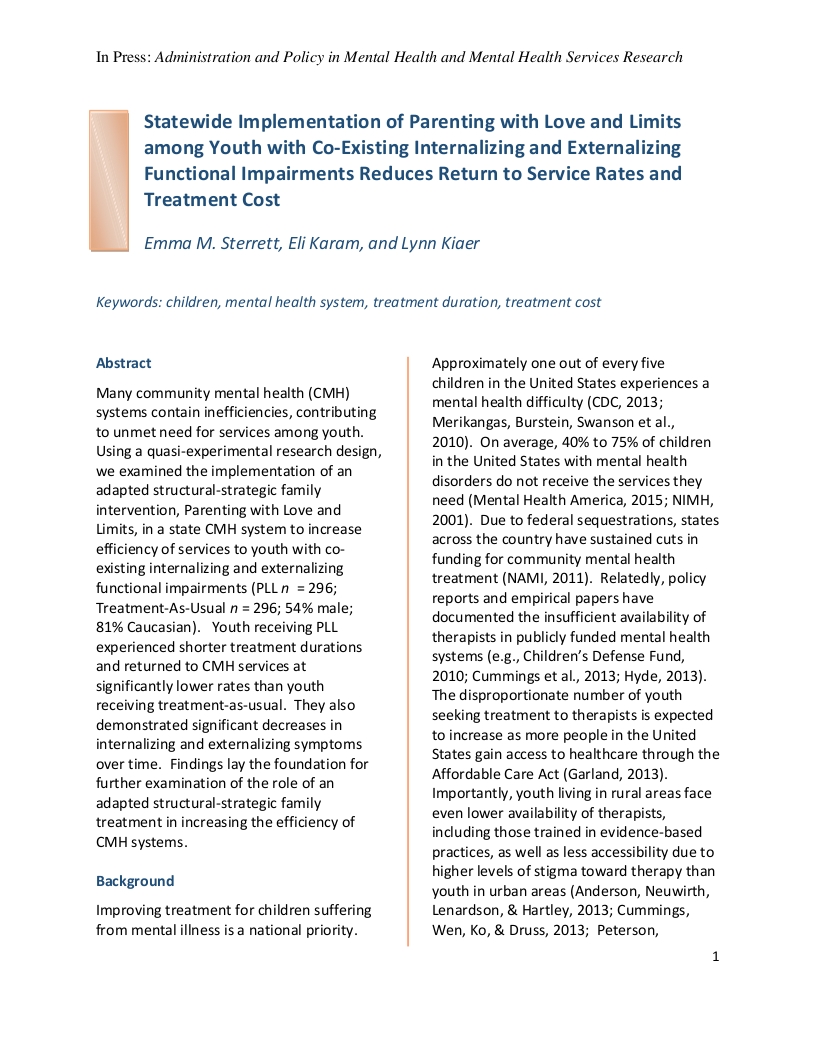
Sterrett-Hong, E.M., Karam, E., & Kiaer, L. Statewide Implementation of Parenting with Love and Limits among Youth with Co-Existing Internalizing and Externalizing Functional Impairments Reduces Return to Service Rates and Treatment Cost. Adm Policy Ment Health (2017). doi:10.1007/s10488-016-0788-4
In this QE study, the implementation of PLL with the State of Idaho Community Mental Health service was examined with the program intent of increasing efficiency of services to youth with co-existing internalizing and externalizing functional impairments. This study found that the treatment group experienced shorter tratment durations and returned to CMH services at significantly lower rates than the treatment-as-usual group. The treatment group also demonstrated significant decreases in internalizing and externalizing symptoms over time.
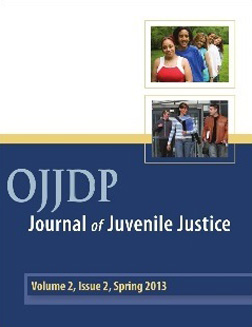
Winokur-Early, K., Chapman, S., & Hand, G. (2013). Family-Focused Juvenile Reentry Services: A Quasi-Experimental Design Evaluation of Recidivism Outcomes. Journal of Juvenile Justice. V2, N2, 1-22.
This quasi-experimental study looked to evaluate the impact of a manualized reentry intervention with youth and their families beginning while the youth were incarcerated and continued through transition and into aftercare. This study examined recidivism outcomes for youth receiving services compared with a matched comparison sample, and showed improved outcomes for the PLL treatment group.
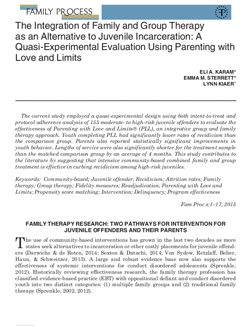
Karam, E.A., Sterrett, E.M., Kiaer, L (2016) The Integration of Family and Group Therapy as an Alternative to Juvenile Incarceration: A Quasi-Experimental Evaluation Using Parenting with Love and Limits. Family Process, accepted for publication.
In this study, the PLL treatment group had significantly lower rates of recidivism than the comparison group. The PLL treatment group also reported statistically significant improvements in youth behavior. Lengths of service were also significantly shorter for the treatment sample than the matched comparison group. This study was conducted in Champaign County, Illinois and included a population of 70% whose race was identified as black.
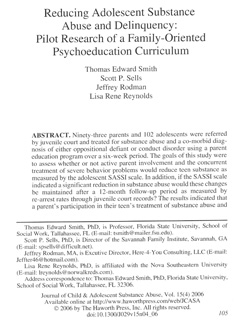
Sells, S.P., Smith, T.E., Rodman, J., & Reynolds, L.R. (2003) Reducing Adolescent Substance Abuse and Delinquency: Pilot Research of a Family-Oriented Psychoeducation Curriculum. Journal of Child and Adolescent Substance Abuse., 15, 105-115.
This study looked at families who attended a PLL based substance abuse prevention program. The results indicate that parents' participation in adolescents' treatment of substance abuse and severe behavioral problems can have a major positive impact on program effectiveness.

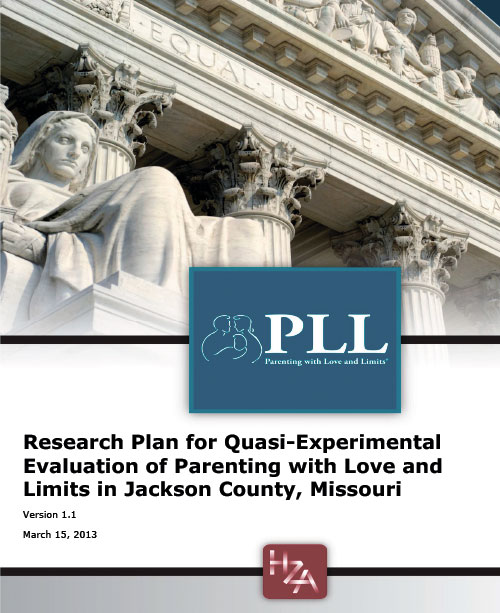
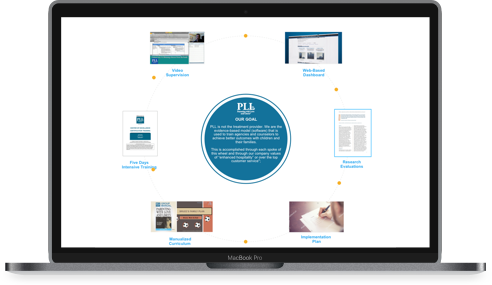

 Send us an email
Send us an email P. O. Box 30381, Savannah, GA 31410-0381
P. O. Box 30381, Savannah, GA 31410-0381
 (800) 735-9525
(800) 735-9525